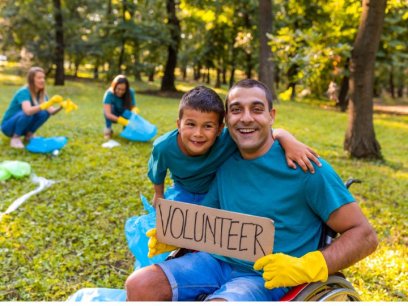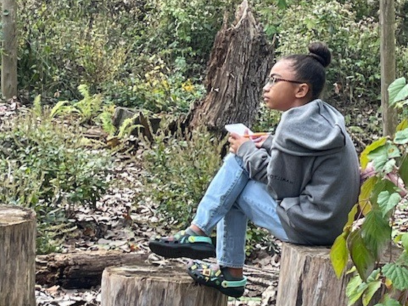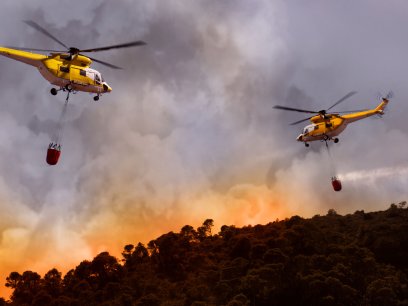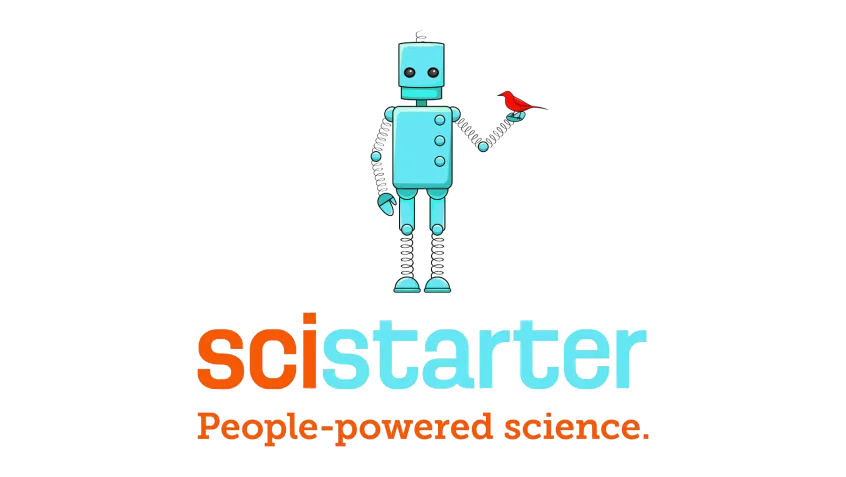
Darlene Cavalier is a professor of practice at Arizona State University's Center for Engagement and Training at the School for the Future of Innovation in Society. Cavalier is the founder of SciStarter, an online database of citizen science projects that enables discovery, organization, and greater participation in science. She also founded Science Cheerleaders, a nonprofit organization comprised of more than 300 current and former NFL, NBA, and college cheerleaders pursuing STEM careers, and co-founded the Expert and Citizen Assessment of Science and Technology (ECAST), a network of universities, science centers, and think tanks that produces public deliberations to enhance science policymaking.
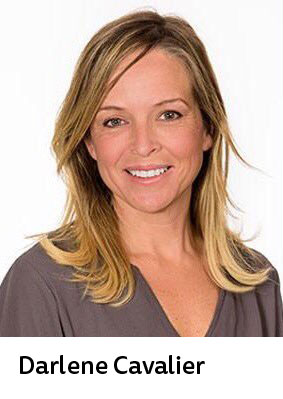
Cavalier is a founding board member of the Citizen Science Association, a member of the EPA's National Advisory Council for Environmental Policy and Technology, and was appointed to the National Academy of Sciences "Designing Citizen Science to Support Science Learning" committee. She holds degrees from Temple University and the University of Pennsylvania, and is a former high school, college, and NBA cheerleader.
When did you first become interested in environmental science?
I got started in this field when I was working at Discover Magazine in business development. I started wondering how people who didn't have formal degrees in science like myself could do more in the scientific enterprise than just read about all the exciting things that were happening out there. So I went to graduate school [at Penn] and started to explore that very specific question. They put together a curriculum for me that would enable me to take classes in the history and sociology of science, the school of government, and school of education. And before I knew it, I was learning about, in essence, citizen science. It really felt like I found my calling.
What exactly is “citizen science”/"community science"?
Broadly, citizen science is defined as when a professional scientist has set up a project and called upon members of the public to help answer questions that he or she can't answer on their own. It's also a way for people with or without a degree, from all walks of life, to engage in projects that advance scientific research. Those projects can be started by members of the community, but they do typically at some point engage a professional scientist or an expert in the development of the protocols and the validation of data.
Usually, a citizen scientist is gathering data, making observations, and sharing observations . . . when a scientist doesn't have the data that's needed, so there's a gap in data. Or, it's when a scientist or a community or a government agency, you name it, has too much data and needs to make sense of it and organize it. In that case, citizen scientists have more of a crowdsourcing role, and they'll analyze data.
What sort of problems does citizen science attempt to solve?
Medical projects or environmental justice are big themes in citizen science. People also get involved with a platform called iNaturalist and use an app to document nature all around them. At the same time, they're advancing research because scientists all over the world use data from iNaturalist to understand [things like] changes in migratory patterns. But you're also able to use that data to get validation on the species that you're looking at. [Citizen science] is just so unbelievably broad.
In your opinion, what impact does citizen science/community science have on the larger field of scientific research?
It has a lot of impact on individual fields. My gosh, ecology and environmental studies have benefited a lot from citizen science.
There are experiments that are treating Alzheimer's because of citizen science. That's a specific project run out of Cornell [University] that called upon people to look at short video clips of blood moving through vessels [in] mice with Alzheimer's, and these people were trained to identify whether blood moving through the vessels is stalled or flowing. And because of the citizen scientists who have done a lot of work to accelerate that analysis, they have found that [administering] experimental drugs resulted in memory being restored to those mice. I would say in almost every field they are pretty interesting examples like that.
Galaxies have been discovered strictly because of citizen scientists. They don't have a trained eye necessarily, so they can see things in the margins that a professional may overlook. In the images from the Hubble [Space] Telescope for example, there are millions and millions and millions of images to sort through and not enough professional astronomers to sort through them. This is how we get new discoveries from citizen scientists.
What is SciStarter?
[In grad school,] I noticed there was this big gap that existed in helping people find citizen science projects. Even if you were to search for citizen science back in 2010, you really had to dig to find these opportunities. You shouldn't have to go to graduate school to figure this out. So I started a database where regular people would be able to add opportunities that they knew about, and certainly find them. And that database then became SciStarter.
I put them together for a couple of reasons. One was so I'd be able to easily cite them as references and show them and use them as examples in my final paper at Penn. Two, to keep for my own track, like, “someday I want to do these projects.” Three, help people find them, as I mentioned. And the fourth, I was advocating to reopen up a closed agency called the Office of Technology Assessment.
Through my work at Penn, I had learned that this agency was initially set up to involve citizen input as well as professional input to help Congress understand societal impact of emerging technologies and research. I was really driven by this idea of “citizen input.” And it turned out that the emerging SciStarter database was very helpful for people in Congress and professional scientists to understand that there's a lot of people that are out there already doing free things to help advance science. Why are you able to trust them when they're doing free data collection [and analysis] for you, but all of a sudden you don't want them involved in policy conversation?
So I had to show examples that they weren't all birdwatchers . . . they kind of run the whole gamut. Having that database really came in handy, and this is how it expanded and became something bigger.
How does citizen science factor into science learning and environmental education?
We know that new forms of learning outcomes can happen with citizen science. This could be about the content, which is great, as it's always good to learn more about science, but also in the way it impacts identity. The way that you see yourself in the scientific enterprise, the language that you use, the comfort in understanding how to follow protocols.
There's really good evidence of how citizen science is enhancing science learning for people who maybe never even considered themselves part of the scientific enterprise. And we know that repetition and sustained engagement definitely can affect the amount of science learning that takes place in any activity. More and more schools and formal learning environments are assigning citizen science as part of their curriculum.
Can you give an example of something important to keep in mind whether you're participating in or running your own citizen science project?
Providing feedback to a user that they're doing things right or doing things wrong. You know, feedback is super important. This isn't always where scientists who run these projects excel!
Part of what we do at SciStarter is we try to act as a surrogate in that role of providing positive feedback and saying, “Great job!” We also make it easy for people to find the right project to get involved in â there are over 3,000 (projects) on SciStarter, and it can be overwhelming for somebody coming to the site to find one. Each [project] is welcoming and very clear: here's your goal, here's your path, here's how you get started. And then when we see that they have contributed to these projects, we provide feedback to them: “Great job! We see that you've made a contribution. Here's how to continue getting involved in this project, or here's a related project you might want to get involved in.”
Why should someone pursue citizen science?
It really depends on the person. I mentioned Alzheimer's; a lot of people know somebody who's been affected by that or somebody may have been newly diagnosed with it. And so you want to be part of it and really understanding what the issues are.
You can be curious, or concerned, and then you can join an existing project because it is getting you some information that you needed and know somebody is going to use that data, which you may also be able to use yourself to answer some questions that you have.
In other cases, you might suspect that your air is not as healthy as it used to be. You might suspect that some changes are happening in the soil, and that things aren't growing right, or whatever you're concerned about. We have seen some amazing citizen science projects emerge from concerned residents who banded together to find ways to develop reliable protocols, access instruments, and generate credible data so they're taken seriously by governing bodies and others—whether it's the media, [or] whether it's attorneys.
Or, you can meet up with other people who also want to make a difference in the world. This is happening more and more in libraries, with things called BioBlitzes, where people get together and try to document all the things that are in nature around them. For them, the motivation may be very different—to do something good for the world and meet new people in the process, and feel like you're part of the community. And that's great, too!
Where should people start if they're interested in becoming a citizen scientist?
Libraries are becoming a fast-growing source. They are rich resources for all kinds of community programs, so they're likely to know of something happening, but also resources that can be discovered to help somebody create a project.
[Many cities] have libraries where the librarian has a booklet that somebody can read up on citizen science. They can access all kinds of resources that are available for people to plan events and move citizen science forward in a library setting. There's even a physical kit that people can check out of the library to do citizen science projects, which you can find at SciStarter.org/library-kits.
Also, all of April is Citizen Science Month, and CitizenScienceMonth.org has lots of resources for anybody that wants to plan citizen science projects or events during citizen science month. While there, you can also find projects that have been selected by the National Library of Medicine to help advance research on environmental and human health.
